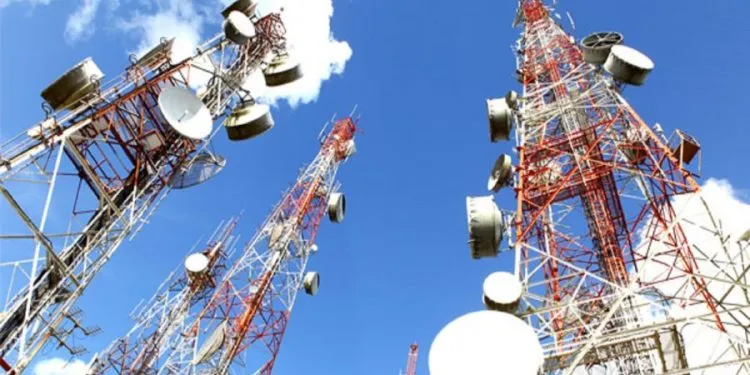The National Bureau of Statistics (NBS) says that active internet subscribers in the four quarters of 2022 increased by 12.8 million.
.png)
The report recently released by the data agency revealed that there were a total of 145,851,496 active subscribers in the first quarter of 2022 as against 144,949,194 subscribers reported in the corresponding period of 2021. This represents a 0.62 percent year-on-year increase in internet subscriptions over the 12-month period.
Also, in the second quarter of 2022, a total of 151,332,090 subscribers were active on the internet which was higher than the 140,175,169 subscribers recorded in the same period of 2021, representing a year-on-year increase of 7.95 percent.
Likewise, in the third quarter, a total of 152,784,980 subscribers were active on the internet when compared with 140,275,459 subscribers in the third quarter of 2021, indicating a 8.91 percent increase in internet subscriptions over the period.
The fourth quarter of 2022 had a total of 154,847,901 subscribers as against 141,971,560 reported in the fouth quarter of 2021, showing a 9.07 percent rise over the period.
Subscription rate
.png)
The data revealed MTN had the highest number of subscribers in 2022 . It had a total of 254.2 million subscribers, followed by Glo with a total of 164.8 million. Airtel had a total of 163.4million subscribers.
The NBS’ survey also showed the number of subscribers per region in the last quarter of 2022. The South-West had the highest number of subscribers with 44.7 million; North-Central had 29.6 million, while North-West reported 28.1 million subscribers.
The South-South had 22.5 million; North-East, 14.9 million; while South-East recorded the least subscriber base with 14.6 million internet subscribers.
The survey further showed that Lagos, Ogun ,Kano and Oyo states had the highest number of subscribers while Ekiti, Bayelsa and Ebonyi states had the least.
Nigerians maintain strong internet presence
Nigerians have maintained a strong internet presence in the last decade. Analysts attribute this trend to information democratisation and the rise of social media. An organisation, Ookla, said that the number of social media users in Nigeria stood at 15.4 percent of the population in early 2022.
Ookla data further showed that the median mobile internet connection speed in Nigeria rose by 4.88 Mbps (+39.0 percent) in the 12 months to the start of 2022. Businesses are also leveraging the internet, forcing several brick and mortar establishments to rethink strategies.
“The number of internet users is fast rising due to the necessity for information, use of social media and educational transition to the internet. The trend is driven by a young demography, which is mostly made up of people below 25 years,” said a Lagos-based tech expert, Mr Micheal Daramola.
“Schools and businesses have moved to the internet such that you can study online or do any type of transactions there. Think of 15 years ago when you had to pay N1000 for an hour or two at a business centre to use the internet. These days, you can sit at home and pay for your electricity, DSTV and other subscriptions using your phone. This is how far we have come.”
An emerging market analyst, Mr Ikechukwu Ibeabuchi, noted that the rise in internet use had affected Nigeria’s political trajectory as seen in the 2023 election, adding that “it has also democratised information use.”
“People have more information today that they did 10 years ago, thanks to the internet. We are not yet there in terms of broadband expansion, but it is indeed a very key element that will drive Nigeria’s economy in the next decade,” he added.



.png)
.png)
